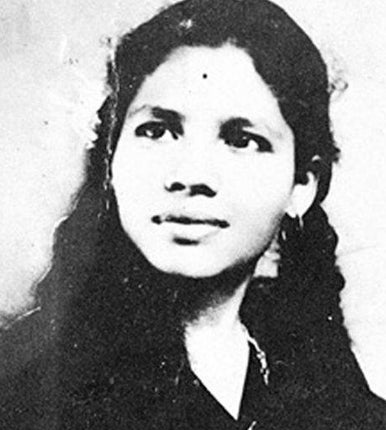India agonises over a nurse in vegetative state

Your support helps us to tell the story
From reproductive rights to climate change to Big Tech, The Independent is on the ground when the story is developing. Whether it's investigating the financials of Elon Musk's pro-Trump PAC or producing our latest documentary, 'The A Word', which shines a light on the American women fighting for reproductive rights, we know how important it is to parse out the facts from the messaging.
At such a critical moment in US history, we need reporters on the ground. Your donation allows us to keep sending journalists to speak to both sides of the story.
The Independent is trusted by Americans across the entire political spectrum. And unlike many other quality news outlets, we choose not to lock Americans out of our reporting and analysis with paywalls. We believe quality journalism should be available to everyone, paid for by those who can afford it.
Your support makes all the difference.India is being forced to confront the issue of euthanasia after the country's highest court ordered a panel of doctors to examine a woman who has been in a vegetative state for almost 40 years.
A lawsuit filed by a writer seeks to have the Supreme Court order hospital staff to stop feeding Aruna Shanbaug, a former nurse who suffered serious brain damage when she was strangled and raped in 1973. Lawyers acting for Pinki Virani, who wrote a book about Ms Shanbaug, argue that the former nurse's condition means she does not have the standard of life guaranteed by the Indian constitution.
But officials at the Mumbai hospital where Ms Shanbaug once worked and where she has been lying in bed for 38 years are opposing the move, saying she is not suffering and that Ms Virani has no right to seek to end her life. The legal action has triggered anxious debate in India, where euthanasia is illegal.
The last time the issue made the headlines was in 2004 when a former chess champion, K Venkatesh, who was suffering from a degenerative neurological order, applied to the court to have his life support machine switched off so that his organs could be donated before they were irreparably damaged. The 25-year-old's efforts failed and he died soon afterwards.
Ms Shanbaug was working at Mumbai's King Edward Memorial (KEM) hospital and engaged to be married when a cleaner attacked and strangled her with a dog chain. While she survived, she suffered brain damage when her oxygen supply was cut off. Ms Virani wrote a series of articles about the attack on Ms Shanbaug. In a book, Aruna's Story, she said the former nurse was in a "totally pathetic state".
In her petition, Ms Virani asked the judges to issue instructions to "forthwith ensure that no food is fed" to Ms Shanbaug, who is 60. "This vegetative existence devoid of any human dignity is not life at all and putting mashed food in her mouth only amounts to violation of human dignity," she said. "The continued vegetative existence of Aruna is a violation of her right to live with dignity ... she has a right to not be in this kind of sub-human condition."
A lawyer for Ms Virani, Shubhangi Tuli, said the case was not about euthanasia. Rather they had asked the court to consider the medical definition of death. "She cannot move, she cannot hear. She only survives because she is being fed," she said. "We are saying this is not life as guaranteed by Article 21 of the Indian Constitution."
Ms Tuli said Ms Shanbaug's parents were dead, her sisters had abandoned her and that her one-time fiancé was no longer "in the picture". She said Ms Virani filed the petition "for a good cause. She is not doing this for publicity".
Officials at KEM have denounced Ms Virani's claims, insisting Ms Shanbaug is not in as dire a condition as the writer suggests. Dr Sanjay Oak, the dean of KEM, told Mumbai's DNA newspaper: "She means a lot to KEM. She is on a liquid diet and loves listening to music. We have never subjected her to intravenous food or fed her via a tube. When those looking after her do not have a problem, I don't understand why a party who has nothing to do with her needs to worry." He added: "We have no moral right to terminate her life. I am against euthanasia for Shanbaug."
As part of deliberations that are being closely watched by activists and the legal world, the court this week established a three-member panel to complete a report on Ms Shanbaug's condition. "The board is requested to examine [her] thoroughly and submit us a detailed report about her physical and mental condition to enable us to get the correct facts," the court said.
Join our commenting forum
Join thought-provoking conversations, follow other Independent readers and see their replies
Comments